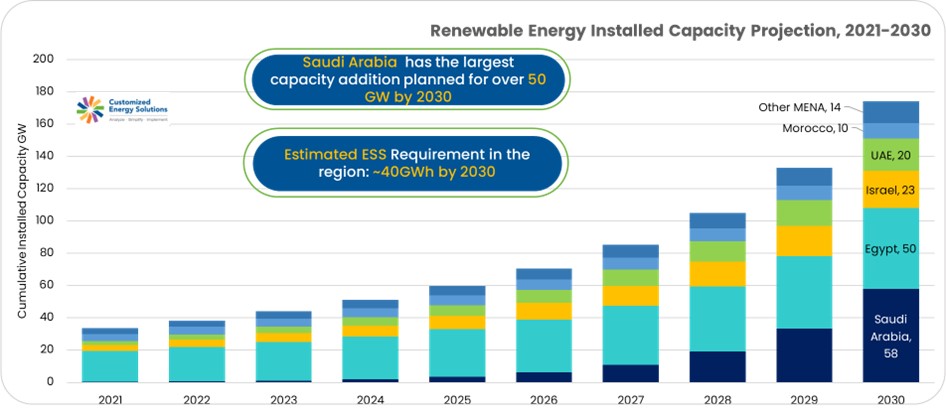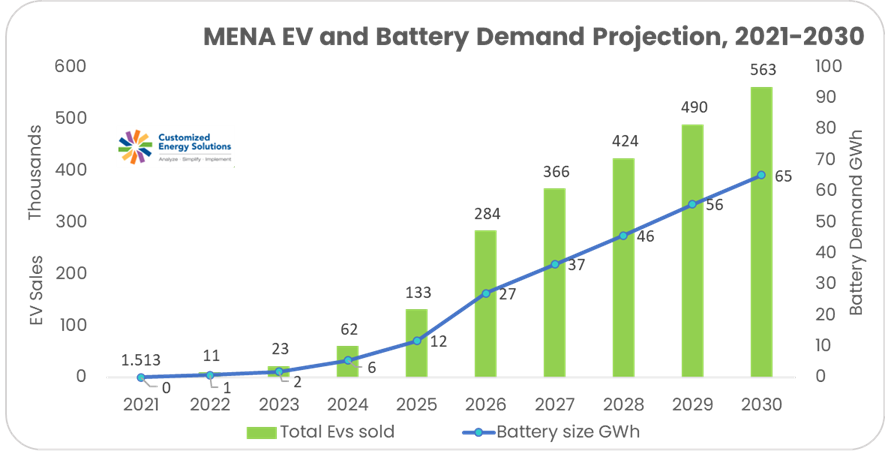Nations across the globe are embracing sustainability and decarbonization measures to prevent climate change and to preserve our natural ecosystem. The Middle East and North Africa regions have come together to accelerate their efforts in implementing the Paris Agreement. Steps have been taken by the governments, one of which was the Inaugural Middle East and North Africa Climate Week, organized in March 2022 and hosted by the UAE.
In addition, the United Nations Climate Change Conference (UNCCC) COP27 2022 in Egypt, and COP28 to be held in the United Arab Emirates in 2023, have taken the baton from the European nations to follow Net Zero carbon emission targets through sustainable measures to preserve the environment.
There have been several measures taken by governments of the MENA countries like Saudi Arabia, the UAE, Jordan, Oman, and Egypt, pertaining to climate change. Global platforms such as the UNCCC, provide a common medium for governments, cities, financial institutions, and private sector leaders to accelerate action towards climate change in the region.
Major nations of the MENA region have announced net zero targets either by 2050 or by 2060.
Table 1: Net zero targets by countries in the MENA region
| Country | Net Zero Target Year |
| United Arab Emirates, Egypt, Oman, Lebanon, Yemen | 2050 |
| Saudi Arabia, Bahrain, Kuwait | 2060 |
Source: Government Announcements
To adopt net zero targets, decarbonization of electricity and transportation sector is of key concern. With the adoption of renewable sources of energy for power generation such as solar, wind, and hydro, carbon emissions in power generation can be reduced. Solar and wind have witnessed wider adoption in the last decade in the MENA region. With the reduction in cost of power generation from these sources, the nations have set National Renewable Energy Targets.

Transportation sector share in CO2 emissions in the MENA region was 28%, as observed in 2021. Available solutions to cut down emissions in the transportation sector are to adopt electric vehicles and hydrogen-based fuel cell vehicles. The new vehicle sales in the MENA region has crossed 2.0 million in 2021. MENA region has a presence of EV models by various prominent EV OEMs such as Tesla, Audi, BMW, Mercedes-Benz, and General Motors. Majorly, electric vehicle types such as electric 4-wheeler and electric buses have seen adoption in the region. Besides, there has been several announcements by government in the MENA region to make a switch towards electric vehicles.

Recommendations for realization of Net Zero targets
Target Setting
- Assessment of the resources available in the country, which needs to be quantified to understand overall potential of the country.
- Setting of short term and long-term targets, with respect to deployment based on available technologies in short term and including the emerging technologies in longer term.
Setting Policy & Regulation
- To make policy in line with the targets set for short term and long term. Provide necessary incentives such as Capex subsidy, tax cuts, to make it attractive to the investors and OEMs and developers.
- Regulations need to be drafted in accordance with the guiding principles of policy as per the geographical condition on case-to-case basis.
Industry Consultation
- Draft policies and regulations should be discussed with the industry bodies, and stakeholders to accommodate their viewpoints and requirements.
- Post industry consultation, the policy and regulations need to be fine-tuned to arrive at final policies and regulations.
Periodic Review and Modification
- Post enforcing the regulations, periodic review to be conducted to evaluate the effectiveness, and target achievement.
- If any shortcoming is observed, and based on market conditions, necessary steps to be taken towards target trajectory alignment to achieve net zero.
